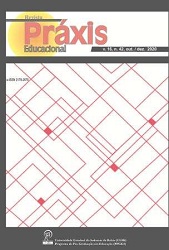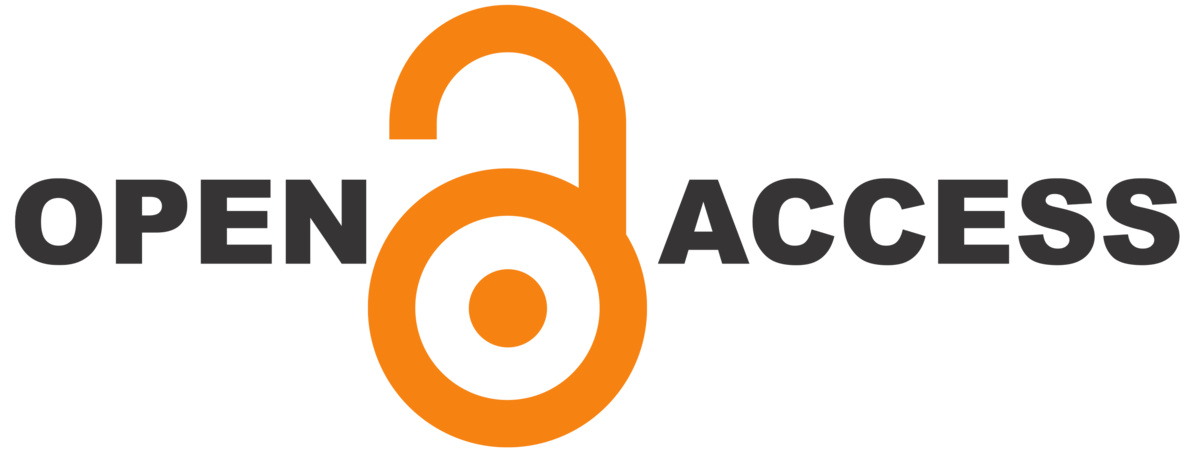THE PUBLIC INSTRUCTION REFORMERS FROM MINAS GERAIS IN THE BEGINNING OF THE REPUBLIC
DOI:
https://doi.org/10.22481/praxisedu.v16i42.6570Keywords:
Professional education, Political culture, Reformers of public instructionAbstract
This article proposes to discuss, in a general manner, questions around the theme of educational policies, during the first decades of the Republic. Specifically, the main goal is to recognize the reformers of public instruction in Minas Gerais that acted during the period of 1881 and 1910. For that, we use as sources the messages sent from the president to the Legislative Congress, the annals of the Chambers of Deputies and Senate, the laws and decrees, from the period. Through these documents, we structured a prosopographic study that allowed us to have a collective knowledge of a group of individuals that were given power to reform the public instruction. In this study, we have privileged categories that helped us knowing the origins of the reformers and their formation and professional trajectories, for example: family relations, place of birth, generational related aspects, scholar trajectories and professionalization. It’s an approach located on the field of social-political history, around the place and action of the political, as in, the comprehension of the existence of social vectors that coincide with the production of a political culture. The analysis allowed us to see the eclosion of the formation of a republican political community of Minas Gerais, constituted of individuals called reformers that, upon the process of formation throughout the historical trajectories, would come to utilize the rhetorical tools specific to the construction of arguments in favor of the measures and projects of reforming the instruction and, there on, the society.
Downloads
References
ANDRADE, Mariza Guerra de. A educação exilada – o Colégio Caraça. Belo Horizonte: Autêntica, 2000.
BARATA, Carlos Eduardo de Almeida. Manifesto Republicano de 1870. Disponível em: <http://www.cbg.org.br/wp-content/uploads/2012/07/manifesto-republicano.pdf>. Acesso em: 03/02/2019.
BERSTEIN, Serge. A cultura política. In: RIOUX, Jean-Pierre; SIRINELLI, Jean-François (org.). Para uma história cultural. Lisboa: Estampa, 1998, p. 349-363.
GONÇALVES, Irlen Antônio. Cultura Escolar: prática e produção dos grupos escolares em Minas Gerais (1891-1918). Belo Horizonte: Autêntica/FCH-FUMEC, 2006.
HORTA, Cid Rebelo. Famílias governamentais de Minas Gerais. In: UNIVERSIDADE FEDERAL DE MINAS GERAIS. Segundo Seminário de Estudos Mineiros: conferências pronunciadas. Belo Horizonte: UFMG, 22 a 27 de outubro de 1956. 1986. p. 43-91.
MACHADO, Raphael Ribeiro. A construção de uma cultura política republicana em Minas Gerais nos discursos das reformas da educação pública nas primeiras décadas da República (1891-1910). Dissertação (Mestrado em Educação Tecnológica). CEFET-MG. Belo Horizonte, 2013.
MINAS GERAIS. Anais da Câmara dos Deputados. 1891-1910. Imprensa Oficial: Belo Horizonte. Disponível em: <http://www.siaapm.cultura.mg.gov.br/>. Acesso em: 22/05/2019
MINAS GERAIS. Anais do Senado. 1892-1910. Imprensa Oficial: Belo Horizonte. 1988. Disponível em: <http://www.siaapm.cultura.mg.gov.br/>. Acesso em: 22/05/2019
MINAS GERAIS. Decreto n. 1947 30 de setembro de 1906.Collecção das leis e decretos do Estado de Minas Geraes. Belo Horizonte: Imprensa Oficial, 1906.
MINAS GERAIS. Lei n. 439, 28 de setembro de 1906.Collecção das leis e decretos do Estado de Minas Geraes. Belo Horizonte: Imprensa Oficial, 1906.
MINAS GERAIS. Lei n° 41, 3 de agosto de 1892.Collecção das leis e decretos do Estado de Minas Geraes. Minas Gerais, Ouro Preto: Imprensa Oficial, 1892.
MINAS GERAIS. Lei nº 203, 18 de setembro de 1896.Collecção das leis e decretos do Estado de Minas Geraes. Ouro Preto: Imprensa Oficial, 1896.
MINAS GERAIS. Lei nº 444, 03 de outubro 1906. Collecção das leis e decretos do Estado de Minas Geraes. Belo Horizonte: Imprensa Oficial, 1906.
MONTEIRO, Norma de Góes. Dicionário Biográfico de Minas Gerais: período republicano 1889/1991.Belo Horizonte: Assembleia Legislativa de Minas Gerais. volume 1 e 2. (1994).
PAULILO, André Luiz. Reforma Educacional e Sistema Público de Ensino na década de 1920 (tensões, cesuras e conflitos em torno da educação popular). Dissertação (Mestrado em Educação). FE-USP. São Paulo 2001.
RESENDE, Maria Efigênia Lage. Formação da estrutura de dominação em Minas Gerais: o novo PRM (1889-1906). Belo Horizonte, UFMG/PROED, 1982.
ROSANVALLON, Pierre. Por uma História Conceitual do Político. Revista Brasileira de História. v.15, n°30. p.09-22, 1995.
SCHWARCZ, Lília Moritz. As Barbas do Imperador. D. Pedro II, um monarca nos trópicos. São Paulo: Companhia das Letras,2007.
SIRINELLI, Jean-François. Histoire desdroites, t. 2, Cultures, Paris, Gallimsrd, 1992.
SIRINELLI, Jean-François. Os intelectuais. In: REMOND, R. (Org.). Por uma história política. Rio de Janeiro: Fundação Getúlio Vargas, 2003.
SOUZA, Carlos Eduardo Dias. A educação como prática política: formação e renovação de repertórios pedagógicos no Segundo Reinado. Tese (Doutorado em Sociologia). FFLCH-USP, São Paulo, 2015.
STONE, Lawrence. Prosopografia. Curitiba, Revista de Sociologia e Política, v. 19, n. 39, jun. 2011.
VIEIRA, Carlos Eduardo. Intelectuais e Educação. Belo Horizonte, Pensar a Educação em Revista, 1, 1, 3-21, abr/jun 2015. Disponível em: http://pensaraeducacaoemrevista.com.br/.
VISCARDI, Cláudia Maria Ribeiro. Elites políticas em Minas Gerais na Primeira República. Estudos Históricos. Rio de Janeiro, vol. 8, n° 15, 1995, p.39-56.
WIRTH, John D. O fiel da balança: Minas Gerais na Federação Brasileira (1889-1937). Rio de Janeiro: Paz e Terra, 1982.
Downloads
Published
How to Cite
Issue
Section
License
Copyright (c) 2020 Práxis Educacional

This work is licensed under a Creative Commons Attribution-ShareAlike 4.0 International License.
Você é livre para:
Compartilhar - copia e redistribui o material em qualquer meio ou formato; Adapte - remixe, transforme e construa a partir do material para qualquer propósito, mesmo comercialmente. Esta licença é aceitável para Obras Culturais Livres. O licenciante não pode revogar essas liberdades, desde que você siga os termos da licença.
Sob os seguintes termos:
Atribuição - você deve dar o crédito apropriado, fornecer um link para a licença e indicar se alguma alteração foi feita. Você pode fazer isso de qualquer maneira razoável, mas não de uma forma que sugira que você ou seu uso seja aprovado pelo licenciante.
Não há restrições adicionais - Você não pode aplicar termos legais ou medidas tecnológicas que restrinjam legalmente outros para fazer qualquer uso permitido pela licença.












